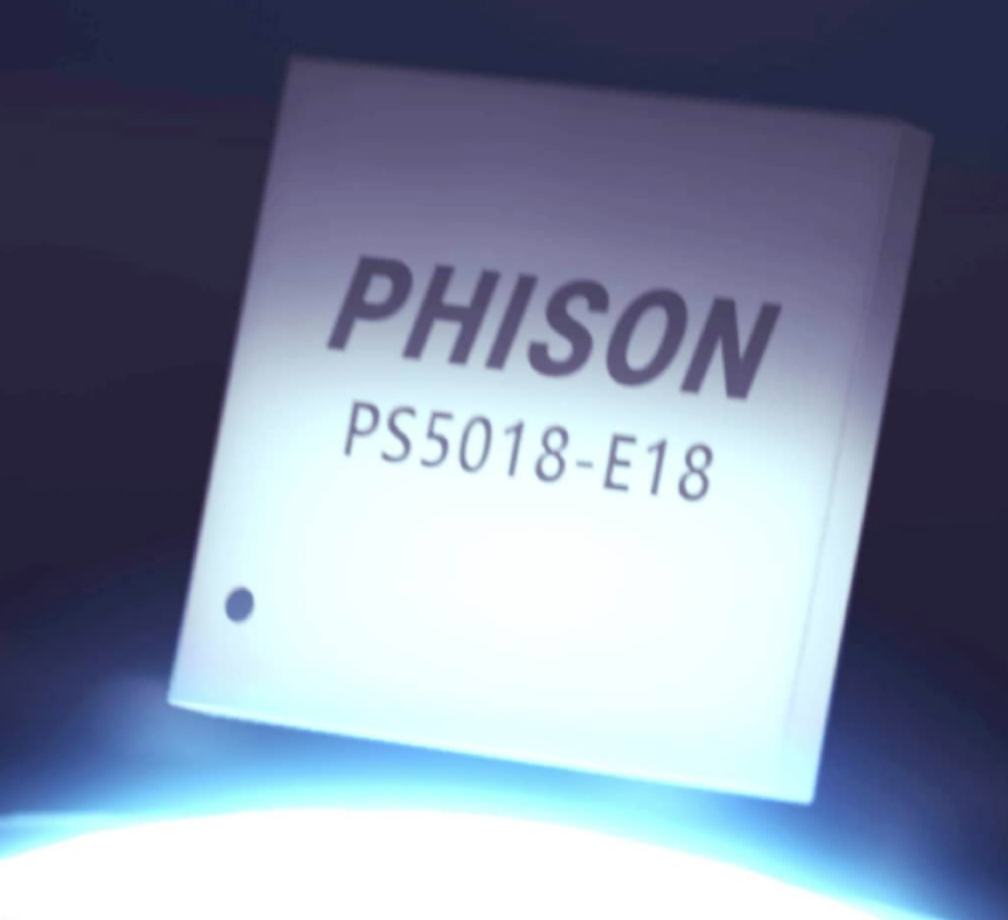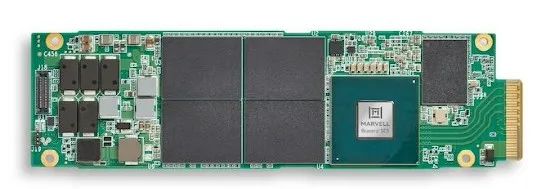According to reports from Electronic Enthusiasts (by Zhou Kaiyang), as SSDs enter the PCIe 4.0 era, their read speeds have exceeded 7GB/s.Many users prioritize speed when purchasing SSDs, understanding that larger capacities generally lead to faster speeds, and they often choose chips like MLC. However, the SSD controller chip is equally important.If we compare an SSD to a garage, the chips are like individual parking spaces, while the SSD controller acts as the garage manager. Each channel corresponds to a level in the garage, and the manager must effectively manage the traffic on each level, just as the controller must reasonably control data flow. So, who are the outstanding “garage managers” currently available?
Samsung
When it comes to SSDs, many people’s first reaction is that Samsung’s SSDs are fast. This is not only due to their high-quality chips but also because their controllers are excellent. Samsung has years of experience in semiconductor design and manufacturing, giving them a unique advantage in controller chips. However, Samsung’s controllers are often only found in their own SSDs, so many users purchase Samsung SSDs not only for their speed but also for their quality control.

980 Pro / SamsungTake Samsung’s flagship SSD, the 980 Pro, for example. This SSD uses Samsung’s self-developed Elpis controller, which boosts the maximum sequential read speed to 7000MB/s. The Elpis controller is built using Samsung’s 8nm process and is one of the first controllers to support PCIe 4.0. However, the Texas snowstorm earlier this year significantly impacted Samsung’s SSD controller supply in the U.S., leading to shortages.
Phison
In addition to Samsung, another common controller chip manufacturer is Phison, a Taiwanese company. As one of the first to capitalize on PCIe 4.0, Phison has taken the lead in the consumer PCIe 4.0 SSD market. The PS5016-E16, released in 2019, became the first consumer PCIe 4.0 SSD controller chip.The PS5016-E16 inherits technology from its E12 controller, allowing a single M.2 SSD to achieve a sequential read speed of 5GB/s and a sequential write speed of 4.4GB/s. Paired with 96-layer 3D TLC flash memory, the E16 can support SSD capacities of up to 4TB. The E16 features a dual-core Arm Cortex R5 32-bit CPU design, built on TSMC’s 28nm process.However, despite seizing the opportunity, the E16 did not fully utilize the potential of PCIe 4.0, prompting Phison to release the E18 controller in the second half of 2020.

PS5018-E18 / PhisonThe E18 features a tri-core Arm Cortex R5 CPU design, built on TSMC’s 12nm process, achieving a maximum sequential read performance of 7400MB/s and a maximum sequential write performance of 7000MB/s. Additionally, the E18 is compatible with the latest NVMe 1.4 standard, while Samsung’s Elpis controller currently only supports up to NVMe 1.3c. Currently, SSD manufacturers like Kingston and Corsair have already adopted Phison’s E18 controller in their flagship products.
Marvell
Another notable player is the established American company Marvell, although Marvell rarely competes directly on speed with its rivals. In 2019, Marvell released low-power PCIe 4.0 NVMe SSD controllers, including the 88SS1321, 88SS1322, and 88SS1323.All three SSD controllers utilize a tri-core Arm Cortex R5 CPU design, but only the 88SS1321 features a DDR controller, while the other two adopt a DRAMless design. The 88SS1321 and 88SS1322 can achieve maximum performance of 3.9GB/s for sequential read speeds and 3.3GB/s for sequential write speeds. Bravera SC5 / MarvellAlthough Marvell may not lead in controller speed, its R&D capabilities and speed remain top-notch. In May of this year, Marvell released the first batch of PCIe 5.0 NVMe SSD controllers, the Bravera SC5 series, which includes the 8-channel MV-SS1331 and the 16-channel MV-SS1333. The Bravera SC5 SSD controller is also the industry’s first to support both PCIe 5.0 and NVMe 1.4b.The Bravera SC5 can achieve sequential read speeds that are double that of PCIe 4.0 SSDs, reaching 14GB/s, and sequential write speeds of up to 9GB/s. Moreover, the Bravera SC5 employs a new mixed-core design, utilizing Cortex-R8, Cortex-M7, and Cortex-M3 Arm cores.
Bravera SC5 / MarvellAlthough Marvell may not lead in controller speed, its R&D capabilities and speed remain top-notch. In May of this year, Marvell released the first batch of PCIe 5.0 NVMe SSD controllers, the Bravera SC5 series, which includes the 8-channel MV-SS1331 and the 16-channel MV-SS1333. The Bravera SC5 SSD controller is also the industry’s first to support both PCIe 5.0 and NVMe 1.4b.The Bravera SC5 can achieve sequential read speeds that are double that of PCIe 4.0 SSDs, reaching 14GB/s, and sequential write speeds of up to 9GB/s. Moreover, the Bravera SC5 employs a new mixed-core design, utilizing Cortex-R8, Cortex-M7, and Cortex-M3 Arm cores.
Conclusion
Although the mainstream market is still a competition among international giants, domestic SSD controller manufacturers like InnoGrit, Goke Microelectronics, and Yangtze Memory Technologies are also catching up, launching or planning PCIe 4.0 SSD controller chips. Furthermore, as differentiated demands continue to emerge, customized SSD controllers are beginning to enter the market, which presents an opportunity for domestic manufacturers.


Disclaimer: This article is originally from Electronic Enthusiasts, please indicate the source when reprinting. For group discussions, please add WeChat elecfans999, for submission and interview requests, please email [email protected].
More Hot Articles to Read
-
AMD Surpasses Intel! Data Center Business Soars! From the Financial Reports of Giants, See the Trends in Semiconductor Development!
-
Will PCBs Be Replaced by Chips in the Future? Concerns Behind the Prosperity!
-
15 Minutes to Charge 80%! Energy Density of 160Wh/kg, Works Even at -20℃! CATL’s “Sodium-Ion” Battery Has Great Potential!
-
TSMC’s Nanjing Plant Expansion Approved! Morris Chang Publicly Opposes Chip Self-Sufficiency!
-
Jumping Up to Slap Faces: Factories Are Starting to Shut Down, While Speculators Continue to Celebrate!